Meet the committee
General chair: Jan van Erp
TNO & University of Twente, The Netherlands
Jan van Erp is principal scientist with The Netherlands Organization for Applied Scientific Research (TNO) and full professor of tangible user interaction with the University of Twente. His research focusses on multisensory perception and cognition, applied neuroscience, robotics, and human-machine collaboration in complex environments. Jan is co-chair of the IEEE Future Direction Telepresence.
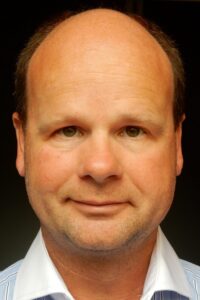
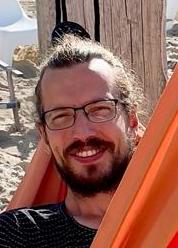
Finance Chair: Douwe Dresscher
University of Twente, the Netherlands
Douwe is professor at the University of Twente. The main focus of his research is on telemanipulation and robotic Avatar systems. He helped shape the i-Botics joint innovation center in the field of telerobotics. i-Botics was a top-5 finalist in the prestigious ANA Avatar XPRIZE competition. In 2022, Douwe founded the company Avatars.Report. The goal of Avatars.Report is to accelerate adoption of the technology by making the current state of knowledge and technology on robotic avatars available to a wider audience.
avatars.report, https://www.linkedin.com/in/douwe-dresscher/
Program Chair: Gwenn Englebienne
University of Twente
Gwenn has a Ph.D. in computer science and an engineering degree in electronics. He is interested in systems that automatically recognize human affect and using this to enable human-robot and robot-mediated human-human interactions. He is particularly interested in the effects of interactions involving asymmetric representations and in soft devices for tactile interactions.
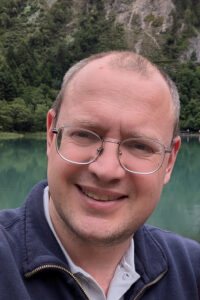
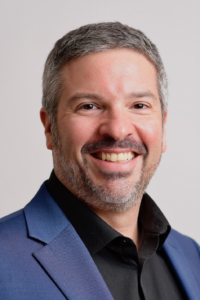
Program Co-Chair: Tiago Falk
INRS-EMT, University of Québec
Tiago H. Falk is a Full Professor at INRS-EMT, University of Québec, where he directs the Multisensory Signal Analysis and Enhancement Lab. He is the Co-Chair of the IEEE Future Directions Initiative on Telepresence. His research interests involve human factors research for telepresence, immersive realities and the Internet of Senses.
Program Co-Chair: Seok Chang Ryu
Ewha Womans University, Korea
Seok Chang Ryu earned his Ph.D. in Mechanical Engineering from Stanford University in 2013 and subsequently worked as a Postdoctoral Research Fellow at Harvard Medical School and Boston Children’s Hospital. He later joined the Department of Mechanical Engineering at Texas A&M University as an Assistant Professor in 2015 before moving to the newly established Department of Mechanical and Biomedical Engineering at Ewha Womans University in Korea in 2019. His current research interests include medical robotics, haptics, telerobotics, and human augmentation. Several of his research papers have received nominations for the Best Paper Awards at the IEEE International Conference on Robotics and Automation (ICRA) and the IEEE International Symposium on Medical Robotics (ISMR). He has served as an Associate Editor for IEEE Robotics and Automation Letters (RA-L) and for IEEE conferences such as ICRA and BioRob, as well as Co-Vice Chair for the IEEE Robotics and Automation Society (RAS) Technical Committee for Telerobotics.
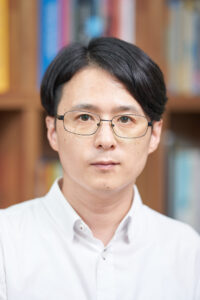
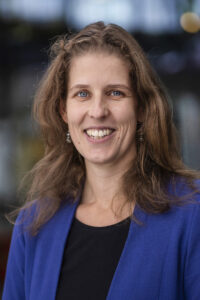
Special Sessions Chair: Irene Kuling
Robotics section, Mechanical Engineering, Eindhoven University of Technology
Irene Kuling leads the Haptics and Soft Robotics (RESHAPE-lab) at Eindhoven University of Technology. As a researcher, she combines the perceptual and biomechanical properties of humans with designing intelligent technology for remote task performance and perception. Such haptic systems find applications in various fields ranging from teleoperated healthcare and rehabilitation to fruit picking. Irene’s key areas of expertise are haptics, human perception, tele-operation systems, soft robotics, motor control and human-robot interaction.
https://www.tue.nl/en/research/research-groups/robotics/haptics-and-soft-robotics
Special Sessions Chair: Sara Falcone
Pace University
Sara Falcone (she/her) is an Assistant Professor at Pace University with expertise in Computer Science, Robotics, Human-Computer Interaction, and Cognitive Science. Her academic experience spans institutions like the University of Twente, Princeton University, Sorbonne Nouvelle, University of Aberdeen, TNO, and FBK. Sara holds a BSc in Computational Linguistics, an MSc in Human-Machine Interaction, and a PhD from the University of Twente, where her research explored embodiment and teleoperation, aiming to improve teleoperation systems by enhancing multisensory feedback for greater user ownership and agency over remote avatars.
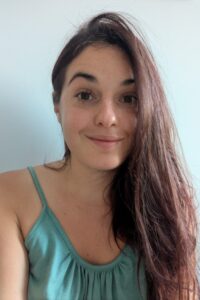
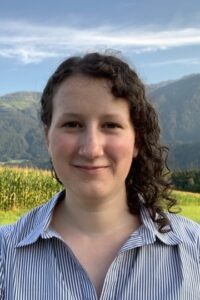
Demo Chair: Marie-Laure Snijders
University of Twente – Human Media Interaction, TNO – Human-Machine Teaming
I am a PhD candidate at the University of Twente and The Netherlands Organization for Applied Scientific Research (TNO), focusing on multisensory cue integration for improving spatial orientation in virtual/extended reality environments. My background is in Biomedical Engineering and Interaction Technology, which I am combining in my research to study how humans integrate different sensory cues when interacting with their surroundings – whether real, virtual or remote.
Sponsorship Chair: Giacinto Barresi
Bristol Robotics Laboratory, School of Engineering, CATE, University of the West of England, Bristol (United Kingdom)
Giacinto Barresi is a Professor of Robotics at the Bristol Robotics Laboratory, UWE Bristol, and he investigates neuroergonomics in robotic-digital systems for healthcare. He also is a member of the Executive Committee of UK-RAS, the EPSRC network for robotics and autonomous systems in the UK, and the co-chair of the Technical Committee on Human Factors in Robotics at the International Ergonomics Association (IEA).
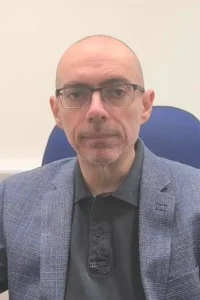

D&I Chair: Shirin Rafiei
RISE research institutes of Sweden
Shirin is a researcher and Ph.D. fellow at RISE Research Institutes of Sweden. Her research focuses on interdisciplinary mixed-method approaches, integrating UX and QoE in Augmented Telepresence and industrial remote-control systems. She also works in extended reality applications and explores advanced user interaction paradigms using visual interfaces for remote control systems, with emphasis on visual perception.
Outreach Chair: Yonas Teodros Tefera
Istituto Italiano di Tecnologia (IIT) Genova, Italy.
Yonas Teodros Tefera is the research team lead of the Vicarios Lab in the Advanced Robotics research line at the Istituto Italiano di Tecnologia (IIT). His research focuses on developing immersive teleoperation and telepresence techniques to improve remote presence and situational awareness. He uses haptics, 3D perception, gaze-driven rendering, advanced 2D and 3D compression, and streaming techniques.
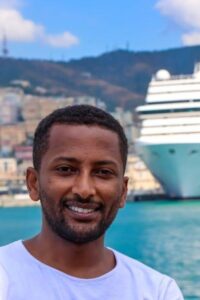
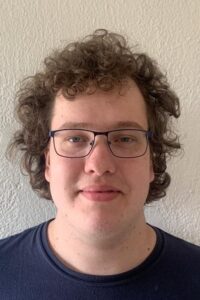
Finance co-Chair: Luuk Lenders
University of Twente, Enschede, the Netherlands.
Luuk is a Ph.D. candidate at the University of Twente, focusing on Software design and Systems engineering in Multi-Modal telerobotic systems. He has a background in Psychology and Human Media Interaction. His interests lie in multi-modal systems, both in VR and Robotics. He is also the student representative for the IEEE Robotics and Automation Society (RAS) Technical Committee for Telerobotics.
Student volunteer Chair: Luc Schoot-Uiterkamp
University of Twente, Enschede, the Netherlands.
Luc Schoot Uiterkamp is a PhD candidate at the University of Twente, with a background in Human Factors engineering and Human Media Interaction. He models human input in teleoperated systems and develops model predictive control systems which work in conjunction with human operators in teleoperated systems in order to compensate for transmission delays.
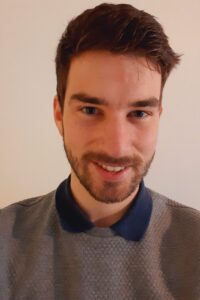
Overall Conference support: David Magnoni
